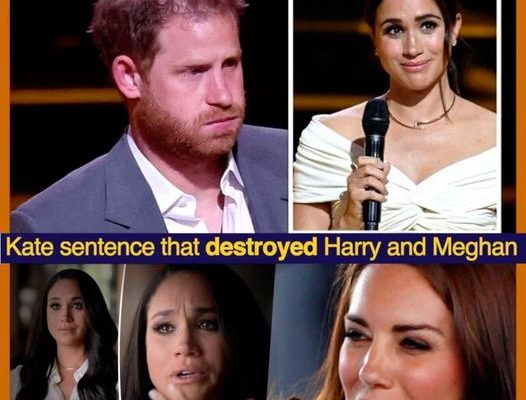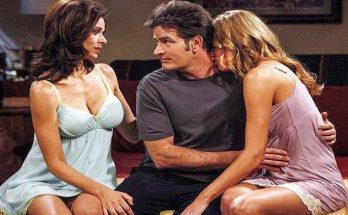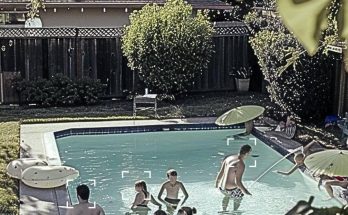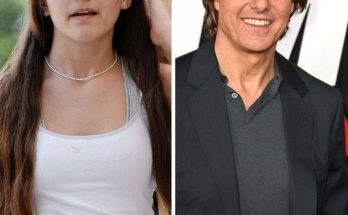While the Queen Mother, who was a loyal customer of Gordon’s and whose passing reportedly impacted the company’s stock price, may never have met her great-granddaughter-in-law Kate, the Princess of Wales, it is reasonable to suggest that Kate is her natural heir. Although the 41-year-old princess may not share the Queen Mother’s penchant for early morning cocktails, she undoubtedly embodies a thoroughly modern interpretation of the “marshmallow” persona.
Evidence of this can be found in the recent revelation that Kate played a leading role in delivering one of the most significant blows to Prince Harry, the Duke of Sussex, in recent years. (Arguably, the second-biggest blow after he lost his favorite Xbox controller during the move to Los Angeles.)
The scene: A sitting room of sorts at Kensington Palace. (If it’s the one featured in a handful of photos of Kate’s home, it appears to have been designed by a 63-year-old named Marjorie with an enduring fondness for mahogany and priceless knick-knacks.)
The Oprah interview with Prince Harry and Meghan Markle in March 2021 sent shockwaves through the royal family and the world. The Duchess of Sussex directly suggested that the royal household had concerns about race, implying that decisions regarding titles and security for their child may have been influenced by racial considerations. She claimed there were “conversations” about their unborn baby’s skin color.
Of all the allegations made during the two-hour interview, including the palace’s disregard for Meghan’s mental health and prioritizing self-interest over their well-being, the issue of race posed the greatest threat to the monarchy. As the head of the Commonwealth, an association representing a third of the world’s population, mostly people of color, the late Queen Elizabeth II was expected to uphold values of inclusivity and multiculturalism, which Britain prides itself on.
The interview reignited discussions about race and the role of the monarchy in modern society, challenging the institution’s commitment to diversity and representation.
The revelations surrounding the aftermath of the Sussexes’ explosive Oprah interview offer an insightful glimpse into the inner workings of the royal family. According to Valentine Low’s updated book “Courtiers,” this interview prompted a crucial decision for Prince William and Kate Middleton.
Low’s account reveals that the Duke and Duchess of Cambridge convened with their officials to discuss how to respond to the incendiary allegations made by Harry and Meghan. While a mild statement expressing familial love had been drafted, a debate ensued over whether a more assertive intervention was necessary.
The crux of the matter centered on whether to take the high road and extend an olive branch, portraying the Sussexes as “much loved members of the family,” or to directly address and offer a perspective on the claims made during the interview.
Significantly, Low reports that William and Kate were in complete alignment on this issue, underscoring the unity and cohesion within their household when navigating such delicate matters.
This behind-the-scenes account sheds light on the intricate decision-making processes within the royal family, particularly when faced with potentially damaging allegations from within their ranks.
The insider’s revelation sheds light on the behind-the-scenes dynamics surrounding the response to the Sussex allegations. According to the source, both Prince William and Kate Middleton were united in their stance that the institution needed to address the claims directly and firmly.

The insider stated, “They wanted a tougher approach,” indicating a desire for a more assertive response. The source added, “They were both of one mind that we needed something that said that the institution did not accept a lot of what had been said.”
While the couple appeared to be on the same page, it was reportedly the Princess of Wales (then the Duchess of Cambridge) who took a more adamant stance, insisting that the “devastating Sussex salvos” could not be ignored or dodged.
With Kate as the driving force, the initial draft was sent back to the staffers, and the now-iconic line “recollections may vary” was added. Despite concerns from some within the Palace that the phrase might “rile” the Sussexes, Kate remained resolute, reportedly stating, “History will judge this statement, and unless this phrase or a phrase like it is included, everything that they have said will be taken as true.”
The insider’s account highlights Kate’s influential role in shaping the Palace’s response, ensuring that the allegations were addressed head-on and that the institution’s perspective was clearly articulated.
The Oprah interview with Prince Harry and Meghan Markle sent shockwaves through the British royal family. Approximately 40 hours after it aired in the United States, Buckingham Palace issued a statement addressing the couple’s claims, particularly those regarding race. The statement’s notable line about “recollections may vary” signaled that the royals would not let the Sussexes’ narrative go unchallenged.
This response represented a clear pushback against Harry and Meghan’s version of events, denying them the opportunity to monopolize the truth or own the narrative solely. It set the stage for royal biographers to begin writing new books, offering alternative perspectives.
Notably, the statement is attributed to Kate Middleton’s involvement, described by a source as “yet another example of how Kate is often far steelier than she appears.” The source praised Kate’s subtle approach, suggesting she is “playing the long game” with her sights set on eventually becoming Queen.
The Palace’s statement and Kate’s alleged role in crafting it demonstrate the royals’ determination to counter the Sussexes’ claims and maintain control over the narrative surrounding the family’s internal dynamics.
The recent comments about Kate Middleton’s growing influence within the royal family offer an insightful perspective on her evolving role. Despite her public image as a nurturing figure, adorned in florals and interacting warmly with children, there is evidence to suggest that Kate is a strategic and calculated operator, keenly focused on establishing her legacy.
Over the past 12 years since joining the royal ranks, Kate has demonstrated a remarkable aptitude for navigating the complex dynamics of the monarchy. She has skillfully built reserves of authority and respect, transforming herself from a decorative presence into a genuine power player.
The observation that appearances can be deceiving holds true in Kate’s case. While her signature bouncy hairstyle may be her most recognizable trait, she is a formidable force not to be underestimated. Her ability to navigate the realpolitik of royalty has allowed her to wield significant influence within the institution.
This analysis sheds light on Kate’s strategic approach and her determination to shape her lasting impact, challenging the perception of her as merely an ornamental figure. It serves as a reminder that public personas can often belie the true depth and ambition of individuals, particularly within the intricate world of the monarchy.



